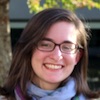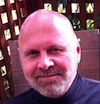
- This event has passed.
The Climate-Friendly Global Academic Conference with a Human Touch
September 12, 2018 @ 3:00 pm - 4:20 pm EDT
FreeAviation is responsible for a large proportion of the climate impact of professional life in university communities. One much-discussed option for reducing this climate impact is to shift some conferencing activities to online distance formats. However, university professionals recognize limits in — and in some cases actively dislike — current webinar formats, in part because they lack the personal warmth of conventional conferences. This webinar brings together a “dream team” of recent global innovators in academic long-distance conference formats with an improved personal experience. First, the popular “Nearly Carbon Neutral” conference format developed by Ken Hiltner and colleagues in the humanities and social sciences at the University of California Santa Barbara (UCSB) replaces static webinar podium presentations with a combination of easy-to-prepare video presentation and written discussion feeds, while preserving the sense of a time-bounded event. Second, the semi-virtual, multiple-location format piloted at the 2018 International Conference on Music Perception and Cognition (ICMPC15/ESCOM10, with hubs in Argentina, Canada, Australia, and Austria), developed by Richard Parncutt with local and international colleagues, offered in-person attendance at web-linked hubs around the globe. Third, organizers of the Student Sustainability Leaders Symposium, held November 5th, 2017 with 1 main location and 2 satellite locations, will present on their experiences. The webinar moderator will be Tina Woolston, Director of the Office of Sustainability at Tufts University. While distance conferencing is just one of many options for reducing the climate impact of university life (www.flyingless.org), it is frequently the first option people mention (both favorably and unfavorably). Therefore, the innovations presented in this lively webinar will make an important positive contribution to the fast-approaching cultural transformation of university lifestyles in a time of climate change.
For members: Access webinar recording and presentation materials
Presenters
 |
Tina Woolston, Sustainability Program Director, Tufts University Tina oversees Tufts University’s sustainability planning, reporting and programming. She also teaches a course in the Environmental Studies department at Tufts called “Sustainability in Action”, which focuses on introducing students to the myriad of career paths that involve sustainability. She created the Eco-Ambassador program for staff and faculty, the Ex-college course “Environmental Action, Shifting from Saying to Doing” and a re-envisioned, student-led Eco-Representative program. She is the chair of the Board of Curators for the Student Sustainability Leader Symposium, an annual conference that brings together student from colleges in the northeast to learn from each other about being sustainability peer leaders. Prior to coming to Tufts, Tina directed the sustainability program at Earthwatch Institute and co-founded her town’s climate action committee. She holds a B.S. and M.S. in Animal Science and Ruminant Nutrition from Cornell University; a certificate in Community Environmental Education from Tufts University’s department of Urban and Environmental Policy and Planning, and is a LEED Green Associate. She was one of the first 1,000 people to be trained by Al Gore to give the Inconvenient Truth slideshow as part of The Climate Reality Project. |
 |
Melissa Tier, Sustainability Program Manager, Office of Sustainability, Swarthmore College At Swarthmore College, Melissa directs the student Green Advisors and the staff Sustainability Advocates Programs. She also leads the implementation of Swarthmore’s recent Zero Waste commitment and annually advises a number of student research projects through the President’s Sustainability Research Fellowship. She is a 2014 alumna of Swarthmore, and is currently pursuing her MSc in Sustainable Urban Development part-time through Oxford University. |
 |
Ken Hiltner, Professor, English and Environmental Studies, University of California, Santa Barbara Ken received his PhD from Harvard University, where he garnered a number of distinctions as a researcher and Teaching Fellow, including the Bowdoin Prize. He has written a number of books and articles, mostly on Renaissance literature, ecocriticism, and the intersection of the two. Prior to becoming a professor, he made his living as a furniture maker. |
 |
Richard Parncutt, Professor of Systematic Musicology, University of Graz, Austria Richard is a music psychologist. His research addresses the perception of musical structure (especially pitch and tonality), psychology of music performance, and the origins of music. He was president of the European Society for the Cognitive Sciences of Music (ESCOM) from 2015 to 2018, and co-founded the Journal of Interdisciplinary Music Studies (JIMS) and the series Conference on Interdisciplinary Musicology (CIM). |